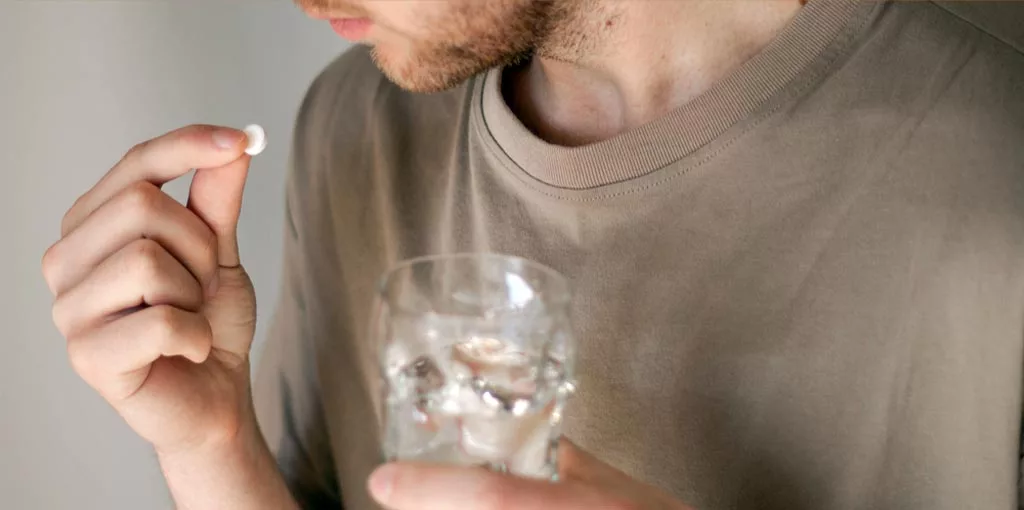Overcoming Percocet Withdrawal Symptoms
In the middle of a raging battle with fentanyl, many other painkillers are still raging onward, doing just as much damage as ever, albeit more quietly. In reality, this damage is far more dangerous, as prescription opioids like Percocet are still responsible for nearly 30% of all emergency room visits for opioid toxicity. The need for Percocet detox is clear.
And that’s only one staggering piece of data among a sea of alarming opioid abuse stats that are overlooked while this tiny pill quietly impacts the lives of about 12 million American each year.
Not everybody with an opioid disorder abuses fentanyl – sometimes, it’s a pill the size of a bean, and it’s just as addictive as any other opiate or opioid on the market. If you or someone you know is dealing with a Percocet addiction, you might want to read this article until the end.
We’ll teach you how to approach Percocet detox and understand what to expect at South Shores, your source for long-term recovery and support in Southern California!
What Is Percocet?
The painkilling effects of Percocet are enhanced in comparison to those of aspirin or acetaminophen. It’s not as powerful as morphine, but it’s much stronger than over-the-counter options and has a very high affinity for drug abuse.
Percocet is the brand name for a pill that contains a blend of oxycodone and acetaminophen (Tylenol). The mix of oxycodone and acetaminophen in Percocet makes it so potent. Since it contains the narcotic substance oxycodone, a type of opioid pain medicine, Percocet is also known as a narcotic. By blocking pain receptors, the non-opioid pain reliever acetaminophen makes oxycodone more effective.
How Does Opioid Withdrawal Begin?
Abuse is possible with any opioid. In addition to alleviating pain, these medications also provide a state of pleasure, which can lead some people to become dependent on them for that purpose alone. The body and brain develop a tolerance to opioids, meaning that they lose their initial effects with time.
This can lead to a situation where the person has to take more and more of the substance just to get through the day without experiencing any withdrawal symptoms, never mind the severe pain they started taking the medication for!
What Does Percocet Do to the Body?
Like to other natural and synthetic opioids, Percocet acts by binding to and activating opioid receptors on neurons in the brain (called the mu receptors). When taken orally, Percocet is absorbed into the bloodstream and eventually reaches the brain after crossing the blood-brain barrier.
The opioid components reach the brain, where they connect to opioid receptors, reducing pain and increasing pleasure. It’s important to remember that Percocet, like other opioids, does not treat the underlying cause of pain but rather fools the body into reducing its awareness of pain. That’s what all of these prescription drugs do – it’s the sense that the pain is gone.
Does Percocet Addiction Cause Physical Dependence?
After an extended period of Percocet addiction and finally entering full-blown substance abuse, you’ll need more of the drug to stave off the physical symptoms of opioid withdrawal.
Long-term addiction becomes the inevitable result of this cycle. The dependence will develop in your brain. You’ll suffer Percocet withdrawal symptoms if you maintain using the medicine but suddenly stop.
In order to rid your body of Percocet, you must go through a period of detoxification. Percocet detox is a necessary step for everyone aiming for sobriety, but there is hope if you’ve made it through the worst parts.
The Effects of Percocet Abuse on the Brain
When consumed, most drugs and types of alcohol have a definite effect on the brain. Yet opiates appear to grab people by the soul and clinch a grip so tight that a Percocet detox center and rehab are almost mandatory. You start taking it to treat pain, and then opioid dependence rears its ugly head, it’s an increasingly familiar story for many of us.
Even though it’s common knowledge that opioid receptors are activated and that the drug alters brain chemistry, few individuals can explain why this might result in addiction.
The mu, delta, and kappa opioid receptors are found in the brain. Drugs are swiftly absorbed into the circulatory system through the blood when they are ingested orally, snorted, or injected directly into veins.
As they reach the brain, they are transformed into morphine after crossing the blood-brain barrier we mentioned earlier. Because of this, they are able to attach to the mu-receptor, the primary receptor involved in pain regulation, emotional response, and reward.
Tolerance and Overcoming Opiate Dependence
The brain adapts to the constant artificial stimulation of drug usage over time. Actually, it develops a tolerance for it and stops producing and regulating its own supply of natural feel-good endorphins.
When the body detects that the medicine is no longer being administered, it sends out a warning signal. More medications are the only response the brain can give, leading to Percocet withdrawal and incredibly painful physical symptoms.
You can expect these severe withdrawal symptoms when you attempt to stop taking Percocet without the help of a Percocet detox center.
What to Expect from Percocet Withdrawal
Dependence on Percocet is possible even when the drug is taken as recommended. Not everybody goes through the psychological symptoms of addiction – they don’t have the goal of getting high.
Although drug dependence is not the same thing as addiction, the two illnesses frequently occur together. Opioid withdrawal symptoms are a common problem for anybody trying to stop using a substance.
Constant observation throughout a medically supervised detox and stabilization program guarantees that these symptoms may be addressed. Hence, everyone has the chance to get clean and start concentrating on their rehabilitation, with the expert Percocet dependence treatment program at South Shores!
Overcoming the More Severe Symptoms With Our Support
When the brain and body grow dependent on a chemical for normal functioning, the abrupt removal of that substance can trigger Percocet withdrawal symptoms. These severe symptoms come with strong psychological symptoms of withdrawal – and the physical effects of strong flu.
Without the help of a medical detox for Percocet, you’ll experience withdrawal symptoms that can become borderline life-threatening.
Some of the symptoms of Percocet withdrawal are:
- Muscle weakness and fatigue
- Watering or tearing eyes
- Runny nose
- Discomfort and agitation
- Anxiety
- Yawning
- Hot and cold sweats
- Goosebumps
- Shivering
The peak of withdrawal occurs within the first three days. That includes, but is not limited to:
- Vomiting, nausea, and diarrhea
- Stomach cramps
- Fever and chills
- High blood pressure and increased heart rate
How Does Percocet Withdrawal Negatively Impact Your Life?
While the process of recovery lasts a lifetime, the withdrawal phase will finish. After 24 hours of the last dose being taken, withdrawal symptoms will begin and can persist for up to a week. The duration and intensity of withdrawal symptoms can vary depending on a number of variables, most commonly the severity of the addiction.
Physical withdrawal effects from Percocet fade towards the end of the first week, but psychological problems persist. Depression is one of these conditions that can make you feel defeated – as though you’ll never find the “old you” again. The severe mental health symptoms that arise from the co-occurrence of a mental health issue and addiction can be significantly reduced with the support of the dual diagnosis treatment program at South Shores.
Relapse is common during withdrawal, and some people even reach the point of considering suicide. That’s why having a strong support system is one of the most important dynamics during this battle.
Find Recovery and Relief from Percocet Withdrawal
At South Shores Recovery and Detox, we are armed with multiple weapons to help you battle Percocet withdrawal and the addiction that it brings with it. Multiple levels of care give you options for your ideal treatment scenario.
It’s important that you never feel alone during your recovery. We’ll help you build your post-treatment support pillars so your case for long-term recovery is only stronger as you exit treatment. For more information on how you can make all of this a reality, contact a member of our admissions team today!



